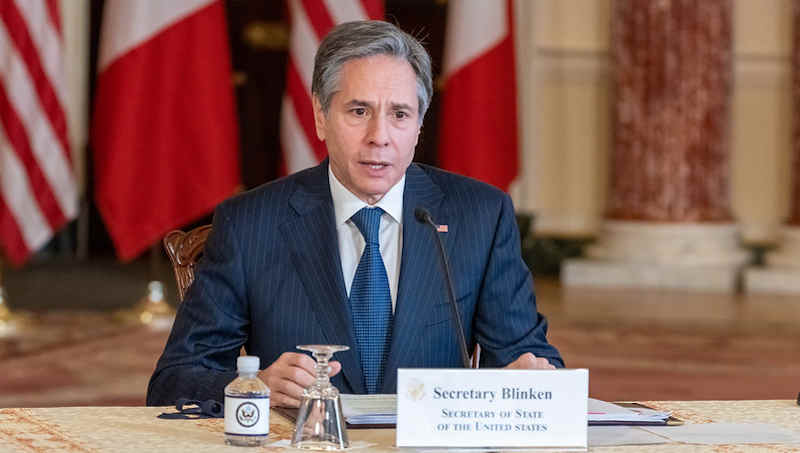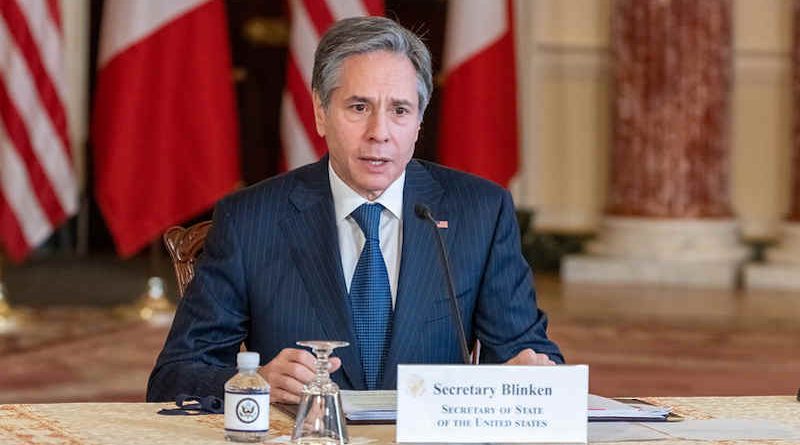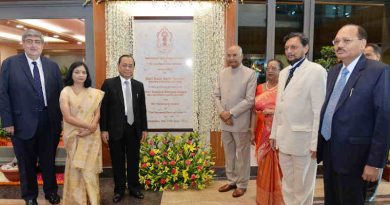U.S. Report Highlights Corruption and Lack of Transparency in India

As there are visible links between corruption and human rights violations as well as other crimes, the U.S. report asserts that India has several significant human rights issues.
By Rakesh Raman
A new report released by the U.S. Department of State has revealed that rampant corruption is happening at all levels of government in India. The report released on March 30 says that the law provides criminal penalties for corruption by government officials. But most government officials frequently engage in corrupt practices with impunity. There were numerous reports of government corruption during the past year, the report says.
According to the report, corruption was present at multiple levels of government in India. On March 18, according to the report, the minister of state in the Prime Minister’s Office informed parliament’s lower house that 12,458 corruption complaints were received between March 2019 and February, of which 12,066 complaints were addressed or resolved.
Additionally, the minister noted the Central Vigilance Commission (CVC), which addresses government corruption, reviewed 2,752 cases during 2019 and carried more than 953 of those cases into 2020.
But the State Department report did not mention that despite the government’s claims, there is hardly any complaint that is resolved. In fact, most bureaucrats who are supposed to resolve corruption cases are themselves corrupt. They simply ignore public complaints that they receive through post or through the online complaint filing systems.
The complaint monitoring system is a major fraud in India. The government departments keep throwing corruption complaints from one bureaucratic desk to another without holding any investigation. After simply sending a complaint from one office to another, they dishonestly record it as a resolved complaint. As corrupt officials and politicians have formed a criminal gang, they do not hold proper investigations into the complaints and there are hardly any convictions or imprisonments for corrupt acts.
Today, most anti-corruption organizations such as the Lokpal, Central Vigilance Commission (CVC), Central Bureau of Investigation (CBI), and the Supreme Court of India exist only as toothless outfits that have repeatedly failed to resolve serious corruption cases involving top bureaucrats and politicians.
Government’s anti-corruption agencies such as Lokpal, CVC, Economic Offences Wings (EOWs) of police, Lokayukta offices, state vigilance departments, etc. are full of unskilled (or uneducated) investigating officers who do not understand various aspects of white-collar financial crimes and they also lack communication skills.
These so-called investigating officers are so ignorant that they do not even understand the corruption prevention laws of India and therefore either dismiss the corruption complaints or keep sitting on them without taking any action. When there are no consequences for the corrupt officials and politicians, they commit more corruption crimes with impunity.
In addition to the U.S. State Department report, there are multiple global surveys which reveal that corruption is increasing rapidly in all parts of India. The U.S. report adds that corruption happens at different levels including the payment of bribes to expedite services, such as police protection, school admission, water supply, and government assistance.
The report says that civil society organizations drew public attention to corruption throughout the year, including through demonstrations and websites that featured stories of corruption. It also says that media reports, NGOs, and activists reported links among politicians, bureaucrats, contractors, militant groups, and security forces in infrastructure projects, narcotics trafficking, and timber smuggling in the northeastern states.
Although the law mandates asset declarations for all officers in the Indian Administrative Services (IAS), the bureaucratic corruption is increasing rapidly. The report says that both the Election Commission and the Supreme Court upheld mandatory disclosure of criminal and financial records for candidates for elected office. But these records are not disclosed, which increases the corruption opportunities for bureaucrats and politicians.
As there are visible links between corruption and human rights violations as well as other crimes, the U.S. report asserts that India has several significant human rights issues, including restrictions on freedom of expression and the press, corruption and tolerance of violations of religious freedom. Moreover, corruption is causing unprecedented poverty, hunger, unemployment, injustice, and civil unrest in all parts of India.
Honored to release the 45th annual Human Rights Report. It demonstrates that human rights, transparency and accountability are at the forefront of U.S. foreign policy. We acknowledge the work ahead and expect all nations to respect human rights and fundamental freedoms. #HRR2020 pic.twitter.com/G7BO475AoG
— Secretary Antony Blinken (@SecBlinken) March 30, 2021
“Honored to release the 45th annual Human Rights Report. It demonstrates that human rights, transparency and accountability are at the forefront of U.S. foreign policy. We acknowledge the work ahead and expect all nations to respect human rights and fundamental freedoms,” said U.S. Secretary of State Antony Blinken while releasing the ‘2020 Country Reports on Human Rights Practices’.
By Rakesh Raman, who is a national award-winning journalist and social activist. He is the founder of a humanitarian organization RMN Foundation which is working in diverse areas to help the disadvantaged and distressed people in the society.





